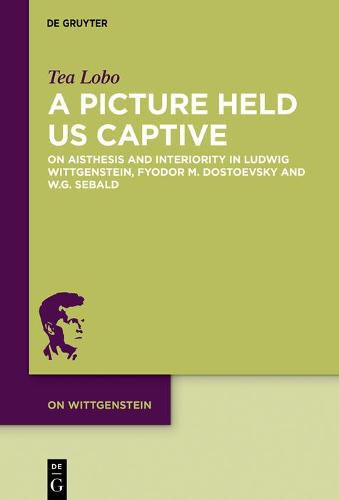Readings Newsletter
Become a Readings Member to make your shopping experience even easier.
Sign in or sign up for free!
You’re not far away from qualifying for FREE standard shipping within Australia
You’ve qualified for FREE standard shipping within Australia
The cart is loading…






While there are publications on Wittgenstein’s interest in Dostoevsky’s novels and the recurring mentions of Wittgenstein in Sebald’s works, there has been no systematic scholarship on the relation between perception (such as showing and pictures) and the problem of an adequate presentation of interiority (such as intentions or pain) for these three thinkers.This relation is important in Wittgenstein’s treatment of the subject and in his private language argument, but it is also an often overlooked motif in both Dostoevsky’s and Sebald’s works.
Dostoevsky’s depiction of mindset discrepancies in a rapidly modernizing Russia can be analyzed interms of multi-aspectivity. The theatricality of his characters demonstrates especially well Wittgenstein’s account of interiority’s interrelatedness with overt public practices and codes.
In Sebald’s Austerlitz, Wittgenstein’s notion of family resemblances is an aesthetic strategy within the novel. Visual tropes are most obviously present in Sebald’s use of photography, and can partially be read as an ethical-aesthetic imperative of rendering pain visible. Tea Lobo’s book contributes towards a non-Cartesian account of literary presentations of inner life based on Wittgenstein’s thought.
$9.00 standard shipping within Australia
FREE standard shipping within Australia for orders over $100.00
Express & International shipping calculated at checkout
Stock availability can be subject to change without notice. We recommend calling the shop or contacting our online team to check availability of low stock items. Please see our Shopping Online page for more details.
While there are publications on Wittgenstein’s interest in Dostoevsky’s novels and the recurring mentions of Wittgenstein in Sebald’s works, there has been no systematic scholarship on the relation between perception (such as showing and pictures) and the problem of an adequate presentation of interiority (such as intentions or pain) for these three thinkers.This relation is important in Wittgenstein’s treatment of the subject and in his private language argument, but it is also an often overlooked motif in both Dostoevsky’s and Sebald’s works.
Dostoevsky’s depiction of mindset discrepancies in a rapidly modernizing Russia can be analyzed interms of multi-aspectivity. The theatricality of his characters demonstrates especially well Wittgenstein’s account of interiority’s interrelatedness with overt public practices and codes.
In Sebald’s Austerlitz, Wittgenstein’s notion of family resemblances is an aesthetic strategy within the novel. Visual tropes are most obviously present in Sebald’s use of photography, and can partially be read as an ethical-aesthetic imperative of rendering pain visible. Tea Lobo’s book contributes towards a non-Cartesian account of literary presentations of inner life based on Wittgenstein’s thought.